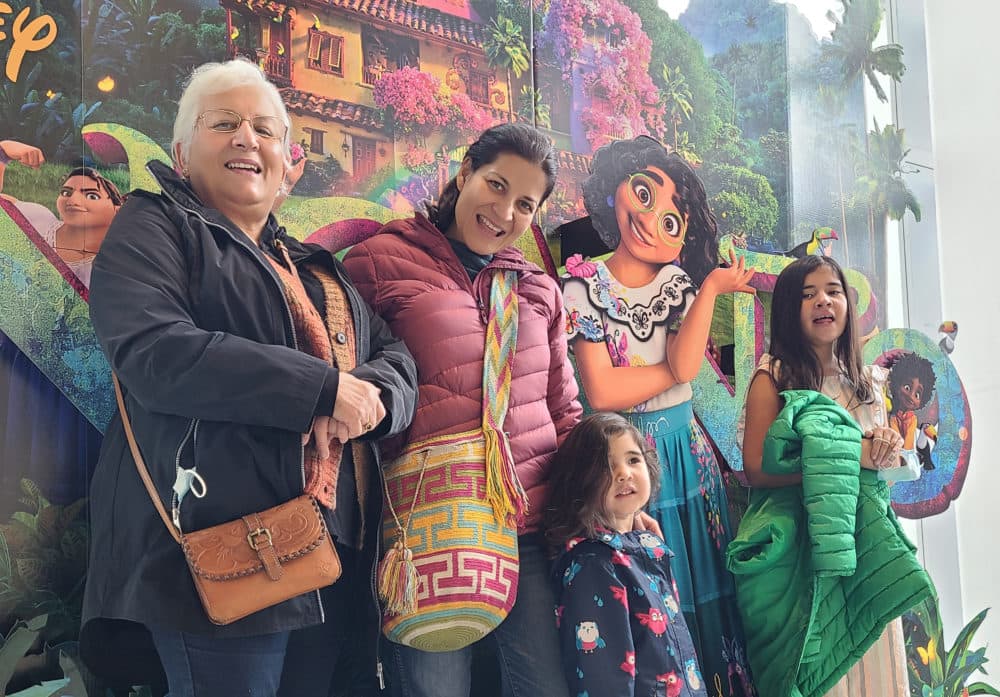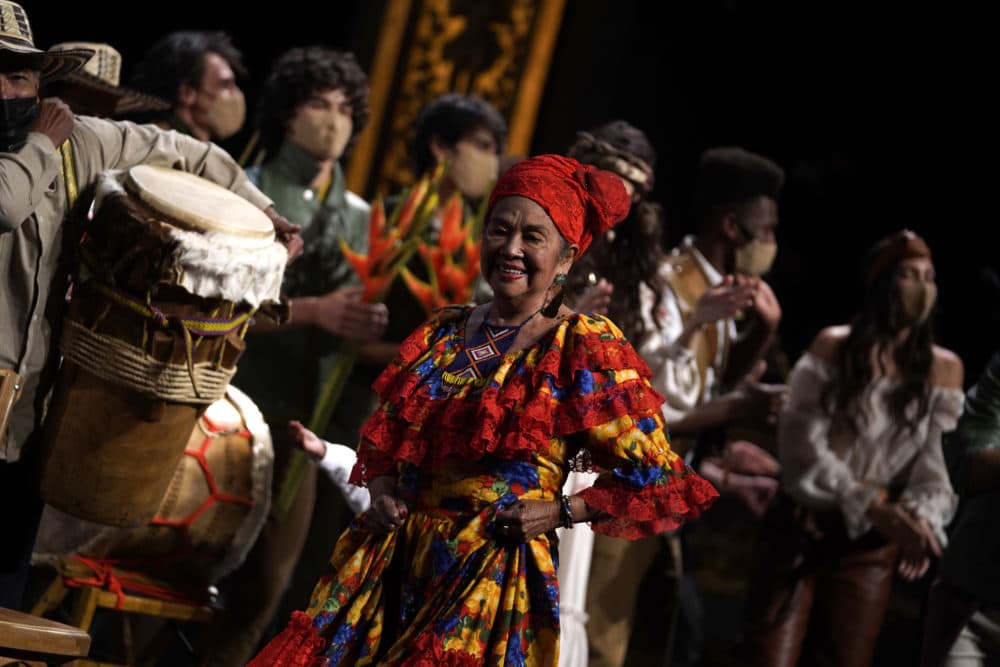Advertisement
Commentary
What 'Encanto' means to me as a Colombian-American

There’s no escaping the "Encanto" train, which is barreling down the tracks with remarkable momentum. While the hit song “We Don’t Talk About Bruno” continues to top the Billboard Hot 100 chart, it was the movie's Oscar nomination that made me exhale with great satisfaction.
I can relate to the excitement the film’s team felt at learning they had been nominated. After all, the film I co-produced was Oscar longlisted in the animated short film category, while "Encanto" was a contender in the animated feature film and original song categories. It felt transformative to see two films centered around Colombian characters in the running. The only other time we’ve seen a Colombia-centric film at the Oscars was "Maria Full of Grace" in 2004. That film, however, only perpetuated Colombia’s stigmatization as a country of cocaine and violence.
Alas, while our film "Demis’ Panic" — a COVID-19 story about a Colombian-American protagonist — didn’t proceed further, I was thrilled to see "Encanto" move forward because this particular film painted Colombia with a very different brush. "Encanto" is a Colombian fable about a family, la familia Madrigal, with magical powers who live hidden in the mountains of what closely resembles the beautiful Valle del Cocora. To bookworms out there, this plot makes sense since Colombia is the land of Gabriel García Márquez, the Nobel Prize laureate who popularized magical realism as a literary style.
Disappointingly, when most people think of Colombia, neither magical realism nor the Nobel Prize in literature comes to mind. We Colombians have been stereotyped as nothing more than narcotraffickers for decades. The Colombian drug lord trope has become a commodity. It is a money-making machine in films — like the aforementioned "Maria Full of Grace," Netflix’s "Narcos," and many others in music, and in pop culture generally. Even narco-tourism in Colombia has emerged to satisfy the morbid curiosity of foreigners. But "Encanto" has tremendous potential to turn this stigma on its head, especially if it takes home the Oscar.
As a Colombian immigrant, I too have carried this stigma in the 30 plus years I have lived in the U.S. I’ve been scrutinized by customs agents at the airport — my bags thoroughly inspected, shampoo bottles checked, and underwear unrolled. Acquaintances have joked that I’m connected to narcos. A boss once even implied I was a drug mule.
We Colombians have been stereotyped as nothing more than narcotraffickers for decades.
When I was 12, my family escaped the violence in Medellín and migrated to Boston. It was 1989 and Medellín had been dubbed the most dangerous city in the world. I witnessed atrocities no one, especially a child, should ever experience. Those traumas came with me to the States and manifested as PTSD, anxiety, and depression. I struggled much of my life, but through my own volition, I managed to overcome those demons. Now, as the mother of two bi-ethnic, bi-cultural girls, my mission is to show them the true beauty of Colombia.
Watching "Encanto" in a Dolby Cinema, in ultra-vivid life-like colors and three-dimensional sounds, with my daughters, my mother, and my husband, was an opportunity to do just that. We even posed in front of the movie’s posters, smiling big, taking lots of photos for Instagram because this movie felt monumental.

"Encanto" won me over with its tremendous attention to detail, bringing in elements that make up the fabric of Colombia, its traditions and their cultural significance. From the alpargata shoes and the mochila bag our heroine Mirabel wears, to the distinct hats like the sombrero vueltiao of the Caribbean and the aguadeño of the Andes, and the arepas and buñuelos the characters eat. I couldn’t hold back tears during the opening scene when I saw two old men, known as silleteros, carrying on their backs enormous flower bouquets supported by a heavy wooden frame, a symbol of patrimony and Medellín's important role in cultivating and exporting flowers to the world. Or when I heard the incomparable voice of Carlos Vives along with accordion and gaita melodies singing about the enchantment of Colombia. What’s more, the film captured the incredible biodiversity that is found throughout the country, like the origins of our people with Indigenous, African, European, and Middle Eastern roots; the lush mountains teeming with a variety of flora and fauna; white snowy peaks; golden sands; and a multi-colored river where the Madrigal family receives their gift of magic. This river, Caño Cristales, is real and so fitting for the land of magical realism.
"Encanto" is perhaps the most positive perspective of Colombia we have ever seen in the media. This film gives me hope that the negative stereotypes will be replaced by the magic and the encanto of Colombia and its people.

